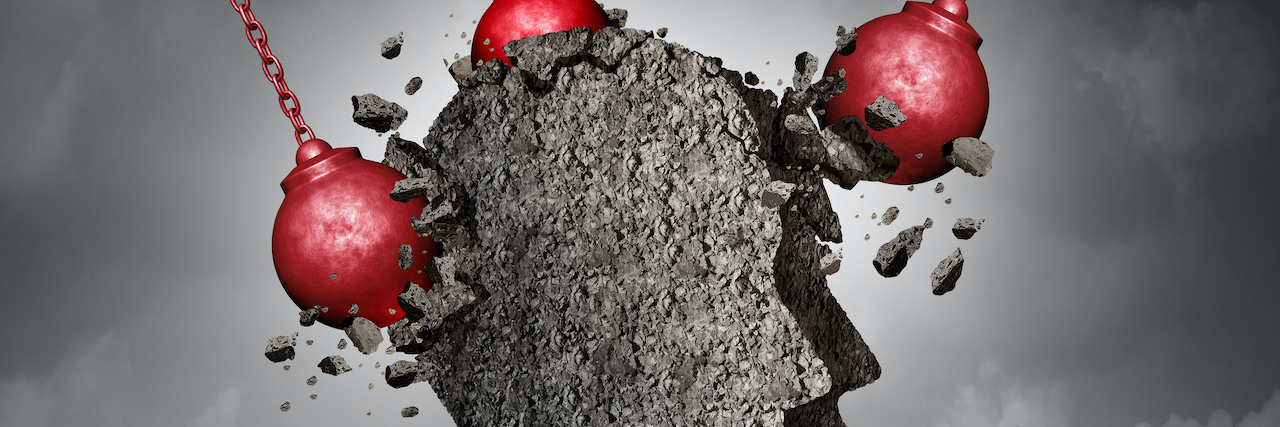How many of you have ever had a headache? I’m not just talking about a little headache, but a pounding, overwhelming pain that would not stop? In this moment of pain, how many of you would have done anything to make it stop? Was it enjoyable? Was it painful? Did you lay there wishing and praying for the pain to just stop? Most of us have had a headache and know how miserable it makes us feel, but for some, the battle is so much more.
Imagine this pain was not just today, but tomorrow, and the next day, and then another day the following week, and two more days the next week, and five more days the following week, and on and on and on it went. Imagine the pain was not just for one day, or for an entire week. Imagine something as simple as light triggering so much pain that you cannot do the simplest task. Imagine laying in a dark room unable to read, unable to focus on the television, not even able to enjoy many sounds because of the pain it brought.
Now imagine you have no idea when this will occur or how often it will happen. Imagine trying to make plans only to have them sidelined a few hours before the event. Imagine having to cancel on people more times than you can count and wondering if they will get tired of you not being there. Imagine missing out on activities or family events, one after another, never getting to go where you want to go. Think of the frustration that would bring her to your family.
Next, think about how you would feel not just physically but mentally and emotionally at this point, How often would you be ready to give up? How many times would you do anything to stop the pain? Then to make matters worse, picture going from doctor to doctor to doctor to doctor trying to find a solution, and when the solution is finally presented, it is you taking so much medicine that all you can do is go to bed.
Finally, imagine your pain being dismissed. Imagine other saying things like, “Oh yeah I have headaches at times.” Or, “Is there some medicine you can take for this?” Maybe they think you are being overdramatic or just need to “stuck it up,” but no matter how it is conveyed, it is obvious that they simply don’t get it.
And while the physical pain is a lot to deal with, the mental anguish and struggle are that much more real. You are forced to cancel plans or miss out on activities repeatedly, and you find yourself discouraged and disappointed and frustrated and it feeds and never-ending cycle that can be very hard to breakthrough. Because you can’t do things that other people can you find yourself isolated. You feel lost and often very depressed. You feel guilty for the things you can’t do and have a hard time forgiving yourself.
I have watched some very close to me battle this condition, and I’ve seen them persevere in the face of discouragement and pain, show strengthen and courage through some very hard and scary times, and I’ve been impressed with the strength they have shown as they have walked this path. I’ve also heard them talk about the loneliness of this position and the need for community. And just like so many other parts of illnesses, this condition can lead to isolation, loneliness, depression, and more than anything, the people surrounding them need to show understand, love and seek to find unique ways to care for them.
If you have a friend or family member struggling with this, find a way to reach out and encourage them and help them on their journey. Make sure they know that they are loved and they are not alone. Make sure they know how much they’re cared for. If you are a person with this condition, find your clan. Find those that will surround you and strengthen you and care for you and not hold the uncertainty of this disease against you.
So often we think we have to do something big and dynamic to make an impact on somebody’s life. So many times, something as simple as a kind and encouraging word, a cup of coffee or maybe even washing dishes for them is all it takes. It is in the small acts of love and kindness that we support those who are battling this and many other conditions, and we remind them of their value, that they are important, and that we are thankful we have them in our lives.
Charles Mickles, author, speaker, consultant. He has written, “Mine’s Parkinson’s, What’s Yours?” and “What Christmas Really Is All About?” You can follow his story at Day By Day: My Journey With Parkinson’s.
Getty image by wildpixel

